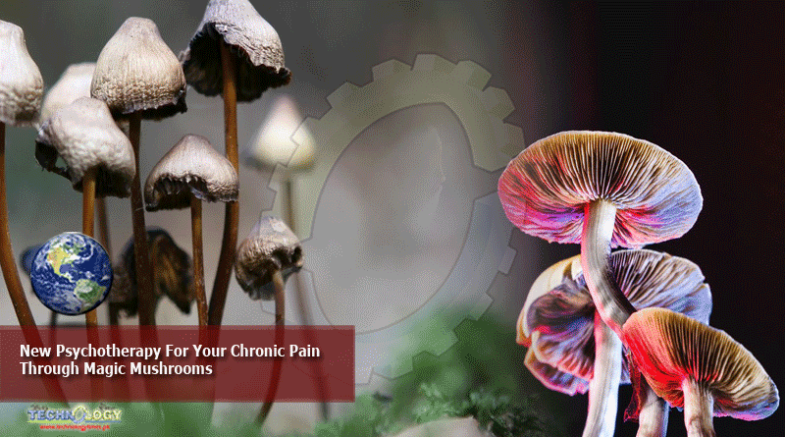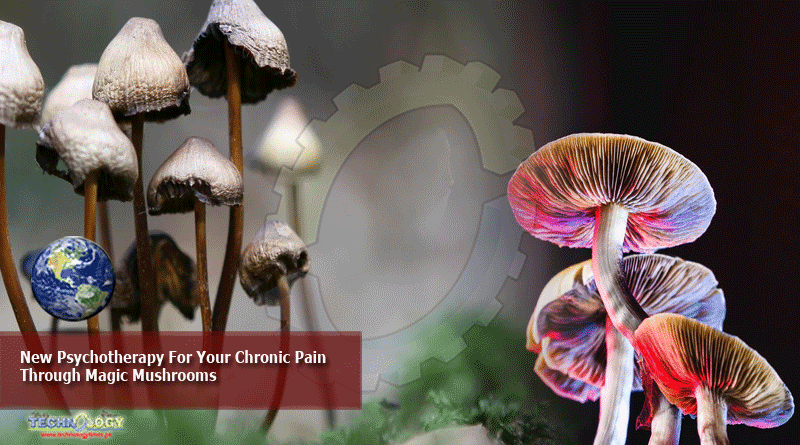Psychotherapy Assisted By Psilocybin, Psychedelic Compound In “Magic Mushrooms,” Seems To Be Remarkably Effective In Treating…

a wide range of psychopathologies
How would you feel about a new therapy for your chronic pain, which—although far more effective than any available alternative—might also change your religious beliefs? Or a treatment for lymphoma that brings one in three patients into remission, but also made them more likely to vote for your least preferred political party?
These seem like idle hypothetical questions about impossible side effects. After all, this is not how medicine works. But a new mental health treatment, set to be licensed next year, poses just this sort of problem. Psychotherapy assisted by psilocybin, the psychedelic compound in “magic mushrooms,” seems to be remarkably effective in treating a wide range of psychopathologies, but also causes a raft of unusual nonclinical changes not seen elsewhere in medicine.
Although its precise therapeutic mechanisms remain unclear, clinically relevant doses of psilocybin can induce powerful mystical experiences more commonly associated with extended periods of fasting, prayer or meditation. Arguably, then, it is unsurprising that it can generate long-lasting changes in patients: studies report increased prosociality and aesthetic appreciation, plus robust shifts in personality, values and attitudes to life, even leading some atheists to find God. What’s more, these experiences appear to be a feature, rather than a bug, of psilocybin-assisted psychotherapy, with the intensity of the mystical experience correlating with the extent of clinical benefit.
These are undoubtedly interesting findings, but should any of it matter? However unusual a treatment’s consequences, shouldn’t we prioritize the preferences of an informed, consenting patient? Yes, I understand that this might change me in strange ways. But my depression is debilitating. I will roll that dice. Putting aside the matter of how well-informed one could really be about such radical transformations, political realities make things more complicated, with the case of psilocybin— currently a Schedule 1, highly illicit drug—showing vividly how values, politics and social narratives can influence the development of biomedical science.
The taboo of the illicit is not an insuperable obstacle. The Multidisciplinary Association for Psychedelic Studies (MAPS), an organization that advocates for “careful uses” of psychedelics, has gone an impressive way in rehabilitating MDMA (i.e., ecstasy) into a legitimate medicine. MAPS’s masterstroke was to focus on demonstrating its potential for treating PTSD. By articulating how MDMA-assisted therapy could help veterans, support for whom enjoys a rare level of bipartisan agreement, MAPS have attracted supporters from across the political spectrum, receiving positive coverage from MSNBC and Fox News alike.
Advocates of psilocybin-assisted therapy tout it as the solution to the burgeoning mental health crisis. But, like MDMA, psilocybin is far from a culturally neutral drug, carrying both the shame of Schedule 1 status and a checkered social history. It too may need to build the kind of politically heterogeneous coalition of supporters that MDMA-assisted therapy enjoys.
But to generate a breadth of appeal, one challenge stands out: psilocybin seems to make people more liberal. Scientific reports associating psychedelic use and liberal values stretch back as far as 1971, and although these findings have been replicated more recently, a noncausal explanation is readily available. Those with conservative attitudes tend to look more disapprovingly on illicit drug use, making them less likely than liberals to try a psychedelic drug in the first place.
However, emerging evidence suggests the relationship could be causal, with clinically administered psilocybin actively shifting political values, just as it shifts many other nonclinical characteristics. Notably, one study of psilocybin for treatment-resistant depression reported that the treatment decreased authoritarian political views in patients. That clinical trial also detected another effect that had previously been reported in healthy participants: psilocybin use leads to increases in the personality domain of openness, itself a predictor of liberal values.
If psilocybin does change political values, the significance of this effect goes deeper than which politicians or media outlets will seek to support or impede psilocybin-assisted therapy. A well-established consensus on the secular democratic state is that it should remain neutral and agnostic on a number of matters, allowing a diversity of values, political attitudes and religious beliefs among its citizens. Where such states have universal health care systems, is it permissible to not only endorse, but fund through taxpayer contributions, a treatment which shifts values in one direction?
With sample sizes currently small, more research is needed to understand whether there truly is a causal relationship at work, and, if so, what its nature might be. Perhaps psilocybin doesn’t so much induce liberal values, but rather consolidates whatever values were present before treatment. A health care modality that entrenches preexisting political sentiments is, at the least, unlikely to make enemies. The same could not be said of a treatment that shifts patients in one direction along the political spectrum.
To overcome this obstacle, advocates of psilocybin-assisted therapy need an inspiring banner that members of any political tribe could rally around. With few things that unite us as powerfully as politics can divide us, perhaps the most alluring banner will be the one thing that unites us all: death. While psilocybin is neither a cure for, nor a prophylactic against, death, studies have repeatedly demonstrated that it could play a profound role in the future of palliative care. The existential distress experienced when faced with a life-threatening or terminal illness can steal away what little quality of life remains for the dying. Such distress responds poorly to our standard pharmaceutical approaches, but the powerful mystical experiences induced by psilocybin consistently transmute demoralization, anxiety and depression into acceptance, peacefulness and meaning, as patients prepare to meet their death.
However else they differ, conservatives and liberals are united in knowing that they, and their loved ones, will eventually die. And for conservatives and liberals alike, psilocybin could help them welcome the end with greater acceptance and less fear. Psilocybin looks set to become a licensed medicine by 2022. But how many ultimately benefit from it will be a matter not just of how well it works, but also the narrative surrounding it when it arrives: does psilocybin underline how we are different, or how we are the same?
This news was originally published at scientificamerican.com
